YOUR GUIDE TO HOME OWNERSHIP
Get Started in Property
How do you set yourself up to buy your dream home or build yourself an investment property portfolio?
With the 7 Key Fundamentals to Getting Started in Property
FROM DAILY ANXIETY TO PROFITABLE PORTFOLIO
Wendy Chamberlain – Trusted Buyer’s Agent & Seller’s Advocate
I want to help you achieve the same incredible results I did in real estate. I bought 10 properties within 6 months – all of them making money and I was earning over $135,000 a year. I went from trading my time for money, making myself sick in the process, to totally replacing my income.
Now I’d love to help you do the same.
I’ve put this program together to guide you through the secrets I learned and the processes I use to take someone from not knowing a single thing about buying property to confidently being able to analyse a deal and make an empowered purchasing decision.
I’ve included all the steps, resources, hints, tips and insider secrets that I discovered along the way.
Before we launch into what you need to do to get started in property, let me introduce myself.

MEET YOUR GETTING STARTED IN PROPERTY HOST
My name is Wendy Chamberlain.
I used to be a top IT Project Manager, responsible for managing $45 million budgets and 35 people at a time. I was hugely successful and making a lot of money.
But then slowly, gradually, I realised it wasn’t for me.
And my body began to tell me so in no uncertain terms! I started to get very stressed. And because of this stress, health issues started to arise.
Serious health issues.
It got to the point where I’d be getting up to work, and I’d be…
Throwing Up Every Single Morning!
I just couldn’t do it anymore. I needed a lifestyle change. And that’s where property investing entered the picture.
I was already dabbling in property, and after a few hits and misses, I developed confidence and acquired the necessary expertise and expanded my portfolio.
Within 6 months I’d bought 10 properties – all of them making money and I was earning over $135,000 a year purely in rental income alone.
Before long, I was able to go back to working just four days a week, to begin with.
I had four days where I was trading money for time, and the ONE DAY where I was building wealth – long term, stable wealth. A foundation that would support myself and my family for the rest of our lives. After that, there was no stopping me! I continued to add to my property portfolio.
My Investments

Winterer Crescent, Dysart
Highset 3 bedroom home with built-in granny flat underneath.
Purchased – October 2005
Sold – November 2007
Purchase price – $275,000
Sale price – $345,000
Gross Profit – $70,000
Rent $650 per week
= $33,800 pa
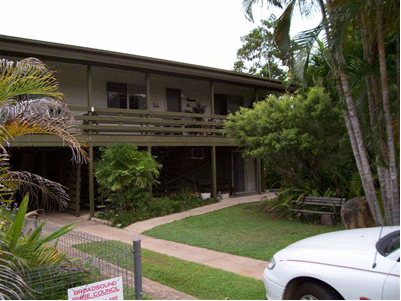
Brock Crescent, Dysart
Highset 4 bedroom home on corner block
Purchased – March 2006
Sold – March 2008
Purchase price – $280,000
Sale price – $385,000
Gross Profit – $105,000
Rent $700 per week
= $36,400 pa
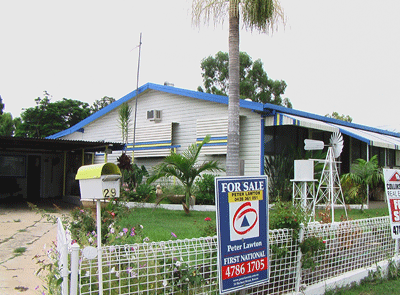
George Street, Collinsville
Lowset 5 bedroom home on a large corner block
Purchased – March 2007
Purchase price – $240,000
Still held – current value $300,000
Rent $450 per week
= $23,400 pa
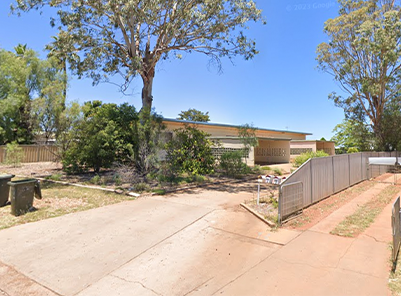
Elizabeth Crescent, Cobar
4 Flats on a large double block
Purchased – March 2006
Purchase price – $256,004
Still held – current value $390,000
Rent $720 per week
= $37,440 pa
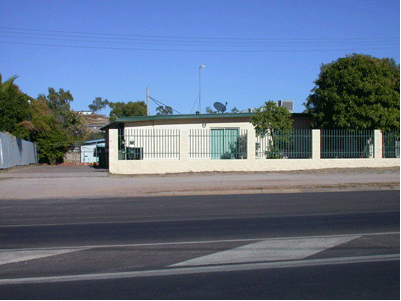
Duchess Road, Mount Isa
4 fully furnished flats on a large block
Purchased – 19 December 2005
Sold – March 2007
Purchase price – $305,000
Sale price – $430,000
Gross Profit – $125,000
Rent $620 per week
= $32,240 pa
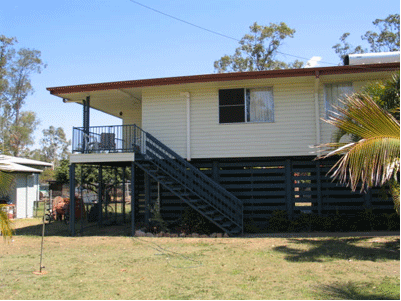
Brennan Street, Dysart
Highset 4 bedroom home
Purchased – November 2005
Purchase price – $297,000
Still held – current value $420,000
Rent $650 per week
= $33,800 pa
It wasn’t until a few friends asked about my real estate investing escapades that I discovered…
My Passion For Teaching!
WHY GET STARTED IN PROPERTY?
What Makes Get Started in Property So Different from Other Real Estate Education and Mentoring Programs?
Get Started in Property is a breakthrough real estate coaching and mentoring program designed for the unique needs of WOMEN.
I have actively bought and sold real estate, for both my clients and my family, for close to three decades. In this program, I’ve bundled up all that knowledge, skill and experience, all my expertise gained in the real estate arena, to show you the path to take and the traps to avoid when getting started in property.
I started Get Started in Property to show women of ALL ages and backgrounds just what is possible. And that it IS possible!
So, how would you like to start – buying your home or investing in property?
Buy Your Home
We share invaluable insights to step you through exactly what is involved to finally buy your own home. From understanding how to finance your purchase, to dealing with real estate agents, right through to negotating the purchase of your perfect home, we are here to hold your hand, every step of the way.
Property Investing
Looking to buy a property for investment? We share comprehensive insights into the intricacies of real estate investing. From becoming an area specialist to how to crunch the numbers on a property deal, our program equips you with the knowledge to spot opportunities and the confidence needed to make a deal happen.
I’ve traveled the road … personally.
I’ve made money from real estate. Lots of money. Once I learnt HOW to do it (and it became easy for me), a strange thing happened – I wanted to show others how to do it, too.
Because it is easy once you learn the process.
When I first started in real estate, I bought and sold 16 properties. Since those early days, I have bought many more, both for clients and for my family. I have had an enormous amount of real-world experience and I work “in the field” every single day.
I stay current on ALL the new trends… on ALL the latest developments… on ALL the news. The media now regularly call ME for my thoughts and insights into what is happening in the world of real estate. There is no substitute for experience and knowledge.
I first met Wendy at a Property Investing seminar in 2007 and even though we all meet many people in our travels I could see even from the first day that Wendy had something special to offer the world.
Since then I have seen her develop her own property portfolio to the point that she now gives something back to the community.
Wendy has chosen to share her property experience in the form of property investing seminars and mentoring programs for women as there seems to be a huge need for this type of information amongst women out there.
Thanks Wendy for providing this program. I am sure it will change the lives of women investors who take advantage of the opportunity.
I know I have already benefited from your events and know that many more women will into the future.
-Georgia Mavris Noble Park, VIC
It only started small.
A few curious questions.
Some assistance when a friend needed advice about an investment.
And then it started to turn into a passion that consumed me.
Within a few months, I started my flagship education website www.affluencia.com and from there launched the site you are on now, www.getstartedinproperty.com.au.
There are 7 Key Fundamentals to Getting Started in Property.
Strategy & Planning
Understand where your strengths lie and what you are good at.
Structure
Building a solid foundation for your property portfolio is key to your success.
Leverage
Knowing how to use other people’s money will drive your investing dollars further.
Due Diligence
Understand what is driving a market to know when golden opportunities appear.
Think like a Tenant
It is not about you. It is about them. What does your renter want?
Remove the Emotion
Fall in love with a property and you run the risk of making mistakes.
Build an Investing Team
Property investing is not something you do solo. You need a great team around you.
The 7 Key Fundamentals to Getting Started in Property
Step 1: Strategy & Planning
If you are serious about investing in property, you need to understand your strengths and know what you are good at.
Why? When it comes to investing in property, knowing what you are good at will help you determine the investing strategy you should focus on.
There is little point deciding to throw on some overalls and renovate properties if the thought of picking up a hammer or getting your perfectly manufactured fingernails dirty makes you cringe.
Before you get started, sit down and work out exactly what you are looking to achieve through investing in property:
-Do you plan on purchasing more than one investment property
-Are you looking for income? Or growth? Perhaps both (yes, this is possible!)
-What is your target area and who is your target market?
-What criteria do you look for (3 bedroom houses, large parcels of land, blocks of units, student accommodation)?
-Who is going to rent your brand new purchase? Does it suit them?
-How long are you going to hold it for?
-What do you do if you can’t rent it for any length of time?
-There are many ways to succeed at property investing, but it is a case of “horses for courses”. You will find that you’ll be drawn to one or two particular property investing strategies more than others.
Take the time to make a plan of what best suits you, your personality and your available time and resources. Some strategies will take longer than others to bear fruit.
For example, there is quite a bit of lead time required for developing a property due to the various approvals that need to be sought. Getting a plan approved by your local council can take time, as does the construction phase of a project.
Perhaps finding deals for other people may better suit what you wish to achieve. Set some goals around where you want to go, how you want to live your life and what you wish to achieve over the next month, the next 12 months, the next 5 years and so on. Then take the steps to get the ball rolling to make it happen.
Step 2: Structure
Setting up the foundations for buying your property is key, as this is the base on which you will start to build your property portfolio.
There are many ways in which you can choose to own property. Examples include buying a property in your own name, buying through a trust or buying a property in the name of a company. Each way has advantages and disadvantages relating to cost, asset protection, taxation, capital gains treatment, and so on.
You really do need to pay special attention to how you structure your property investing particularly if you are planning on building a sizeable real estate portfolio. Get it right and the benefits take care of themselves. Get it wrong and it can be very costly to correct.
How best to structure your investment portfolio is a very detailed, complex and specialised area that requires the advice of an expert in the field.
You should always seek the advice of a trusted, professional advisor in this area who will be able to give you sound, personal advice that is tailored to your own investing situation.
As with everything, make sure you obtain the very best advice by dealing with qualified professionals.
Step 3: Leverage
With property investing, leverage relates to your ability to get more back with less input from you (be it time or money).
The most widely used way to minimise the amount of money you are required to put into any property deal is by getting finance from a bank, lender or money partner to buy real estate.
Particularly when starting out, you are likely to only have a limited amount of money available in your bank account for investing.
Obviously, this will place a limit on what you can afford to buy were you just to use only your own cash.
This is what makes getting finance from elsewhere, be it a bank or money partner, so attractive. In most cases, banks are happy to lend around 80% of the value of a property, which leaves you to fund the remaining 20% from your own funds. In return for lending you the money, banks will charge you interest.
Using other people’s money this way allows you to buy more real estate than you could have possibly done were you to do it on your own.
This is one of the reasons investors find investing in property more attractive over other forms of investment, such as shares, as you have ready access to finance offered by banks.
Step 4: Due Diligence
In order to be a successful home buyer or property investor, you will need to spend time on research. Knowing your target area will ensure you can make decisions quickly when golden opportunities present themselves.
Once you have chosen an area that you would like to invest in, become an area specialist.
Get out there, attend open for inspections, talk to real estate agents, rental managers, councils, relevant authorities, tenants and even the neighbours to gain further insight into what is happening in an area and what makes it tick.
Is there new infrastructure planned for the area? Is the government spending money on upgrading roads and improving schools? Find out what money is being spent and where it is being channeled. Are child care centres opening up? What is the age of the population in the area and what are the family demographics: couples, families, single households. What are their spending habits and is there a good demand for rental properties in the area?
By thoroughly researching an area you will end up knowing the value of a property better than the local real estate agent does.
This will enable you to tailor your offers accordingly and be ready to spot an opportunity when it presents itself. Proper due diligence will ensure your investing success.
Step 5: Think like a tenant
Investing is about buying property that meets the demands of the target market: your tenant. You are not buying a property for yourself to live in and should never base property investing decisions around what you like over what a tenant is looking for.
It is vital to put yourself in the shoes of your target market – the tenant.
Think about whom you are targeting as your tenant and then factor into your investment decision what you think your potential tenant will need.
Where is the property located in relation to the attributes and facilities a tenant will look for? Things such as schools, medical facilities, parks, access to transportation and shopping centres are all on the top of a tenant’s wish list.
Will your tenant spend time caring for a pool or mowing a large lawn? Would installing air conditioning or a security system mean your tenant is prepared to pay more rent?
Remember, the vast majority of tenants are hard-working, honest people who are helping you pay for your investment so make sure you look after them.
A great way to find out what a tenant is looking for is to ask your local rental manager.
Most people looking to rent a property will go to a real estate agent to see what properties they have for rent on their books or attend open for inspections when rentals are advertised.
Tenants will speak to rental managers about what they are looking for in a property and this is a great source of information for you to tap into so that you can ensure your property will be a perfect fit for your tenant.
Step 6: Remove the Emotion
This is probably one the main areas that those starting out in property have trouble with. Often, for someone new to property investing, the only other property purchase they may have made was the purchase of their own home.
That is an emotion charged purchase and totally different to buying a property as an investment.
When investing, it does not matter whether you like the colour of the curtains or the carpet. It does not matter whether your car looks good in the garage.
Any property investment decision should be based on the numbers, first and foremost.
How much will the property rent for and will this cover the cost of holding the property? If not, can any improvements be made to the property that will allow you to increase the rent or can you get creative with ways to bring in more rent for the property? Are any repairs needed that will cost you money? If you are looking at a flat, are there owner’s corporation levies due to be charged for necessary repairs that may put a dent in your budget? Does the property have the potential for capital gain? Can you secure the property for less than the current market value, thereby adding instant equity?
Work out your numbers for the property and determine your maximum price that you are prepared to pay. And stick to it.
Be prepared to walk away from a deal if the numbers do not stack up. There will always be another deal around the corner.
Be careful if you are buying at auction as emotions are very adept at separating you from far more of your money than you had ever planned! You’ll see this scenario all the time: attend any auction and if two people want a property, sometimes all reason gets thrown out the window and it becomes a competition to “win” the property. Don’t fall into this trap.
Be disciplined and know your budget. Then stick to it. Never lose sight of the fact that you will not be living in the property. If you start to see yourself living there, thoughts of “I just have to have it” may start circulating through your mind.
You need to nip those thoughts in the bud. Never purchase on emotion, purely on the numbers. Ask yourself how this property purchase can move you closer to you achieving your goals.
Step 7: Build your Investing Team
Building an excellent team around you will dramatically enhance your investing success. Each team member should bring to the table expertise in their given area.
Look for people that are either active property investors or deal with a lot of clients who invest heavily in property.
People that have been recommended by others that you respect and trust are always a good bet.
So who should you look for to be part of your team?
Buyers Agent
Employing the services of a Buyers Agent or Property Advocate will save you time, money and your sanity. Buying a home is one of the most stressful situations you will find yourself in. So it makes sense to work with an industry expert that is on your side and looking out for your best interests.
Buyer’s Advocates also have established connections and relationships with real estate agents. This is key to finding their clients properties that are yet to be advertised to the general public (off market or pocket listings). Also remember, as nice as they may be, the real estate agent is working for the vendor. Who is working for you, the buyer?
Finance Broker
A good finance broker will save you time, money and a lot of legwork. They will know who lends where, how much you can borrow (Loan to Value Ratio or LVR) based on the type of property you are looking at and the location, which banks are offering the best rates and special deals right now and which lender best meets your requirements for each particular deal.
Make sure your broker knows what your plans are for the property so that they can source the most appropriate loan. Make the time to sit down with them and step them through your plans for buying real estate. Armed with this knowledge, they will then be able to better understand your goals, personal situation and the outcome you are looking to achieve.
Lawyer
It is important to find a lawyer who specialises in the locations that you like to invest in. If you invest in more than one Australian state, most likely you will need to find someone operating specifically in each particular state and there are nuances in the law on a state by state basis.
A good lawyer will be able to peruse the contract of sale for you and point out any nasty “gotchas” in there that you might otherwise have missed. They will also be able to clarify any points for you that you don’t understand. Legal jargon can be tricky to interpret so best to leave it to the experts.
As you become more experienced with reading and understanding contracts, you’ll gain the confidence to be able to understand the basics but always get the fine print checked by a lawyer before you commit in writing.
Accountant
A great accountant will make all the difference to your investing. Choose someone that either actively invests in property themselves or has a lot of clients that do. That way, you know that they’ll be across all the dedications you are entitle to, as they’ll want to know these for themselves. They’ll also be totally up to date with the latest tax laws and rulings.
Your accountant is key as they will be able to advise you how best to be structured and then establish that structure for you. Again, you’ll need to take the time to sit with your accountant so that they understand your goals and outcomes and will then be well placed to advise what best suits your own particular circumstances.
Insurance Broker
As a home buyer or investor, Home and Contents insurance, Landlord Protection Insurance or Building Insurance are vital to protect your newly acquired asset. For investors, they are tax deductable expenses and will provide you with peace of mind should there be any issues with your property.
When buying a property, a general rule is that the purchaser, YOU, is responsible for insuring the property once the contract is signed. Not at settlement, but from the contract date. Make sure you take out a cover note on the property as soon as you sign any contract of sale to purchase real estate.
Should you need to make a claim, you can get your broker to handle all the paperwork and do the legwork. This is one less thing you need to worry about and you can get on with owning a home or investing in property.
Real Estate Agents
Real Estate Agents are a fountain of knowledge and it is well worth it to get to know your local real estate agent. They are the ones that will know what is going on in an area.
You should aim to be the first person they call when a new listing crosses their desk. To achieve this, you are going to have to build rapport with them. Take the time to give them a call or, even better, make a time to catch up with them over coffee so that they get to know you and what your investing strategy is.
Initially you may have to continually follow them up so that they remember you, however, if you make it onto their “call first” list, you get the inside running on any properties hitting the market.
Agents receive many emails and calls each day, so make sure your respect their time and they will do likewise in return.
Property Manager
A professional, proactive Property Manager is an absolute must for your investing team.
One mistake I see investors make is to rely on the agency that sold them the property to also manage their property. As with any company, different areas require different skill sets. Those in the sales team are different to those in the rental team. Make sure you do your research and speak to the rental manager first. Ask specific questions relating to managing your property and also ask for testimonials from existing landlords.
A competent property manager can eliminate 95% of possible tenant issues through careful checking and selection of tenants before they move into your property.
HOW YOU JOIN
The next step for you is to get out there, research your target market and, when you are ready, buy property.
Get yourself a mentor who has “been there and done it”, so you have someone you can rely on for advice and support – this is why I created this course for you.
Get Started in Property is about empowering women to understand the FULL “ins and outs” of real estate investments… how to take control of their wealth and their lives using what I believe to be the ULTIMATE wealth vehicle.
Looking to buy a home?
I have created a step by step process for those who are looking for support in purchasing their own home. The Get Started in Property program is your key to buying your dream home.
Looking to start investing in property?
Together, we guide you through the 7 fundamentals of purchasing an investment property, plus so much more. Once completed, you will be equipped with everything you need to know to confidently take action and place your first step on the property ladder.
GET STARTED IN PROPERTY
Join Now!
Once you join, you’ll get immediate access to your first module in the Get Started in Property program.
CHOOSE YOUR PATHWAY
Get Started in Property
Still have questions?
We’d love to answer any questions you may have about the program. Reach out via the button below and we will be in touch.